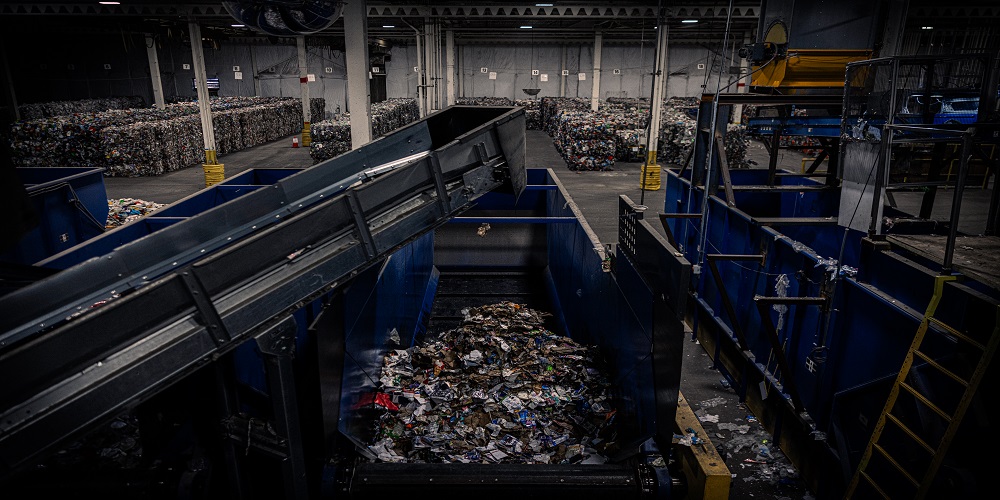On Thursday, Feb. 1, Louisville, Colo.-based AMP Robotics announced that it is rebranding and dropping the “robotics” from its name so moving forward the company will be known as “AMP.” According to AMP’s CEO Matanya Horowitz, the name change reflects how the business and the focus of the company have evolved to build recycled materials centers with artificial intelligence (AI)-equipped sorting systems.
“We’re doing new things with single stream like building fully automated single stream facilities with no sorters in them, and extending the technology into new domains, like showing a different type of mixed waste facility” he said.
The company has grown over the past decade from a tech startup piloting equipment in a local materials recovery facility (MRF) to a major equipment supplier. Its AI and robotics sorting equipment can process many types of recycled materials including most plastic resins, fiber grades, metals, recycled electronics, and municipal solid waste (MSW).
Recently, AMP has turned its attention to innovations at the facility-level, including its newly launched, fully automated facility-scale sortation system AMP ONE, which the company refers to as “the first zero-manual-sortation MRF.”
AMP has also begun to partner with plastics groups, petrochemical companies, micro-facilities, and recycling facilities for rural programs.
To recognize these changes and how to best support its stakeholders and customers, AMP looked within to determine how to represent itself moving forward.
“The work we do with MRFs looks a lot different from our work with petrochemical companies or with people who manage entire regional waste facilities,” Horowitz said. “So, we went through a branding exercise to reflect the broader context of our work and how it’s grown.”
AI at the Core
With the rebranding, AMP intends to strengthen its existing customer base by demonstrating that artificial intelligence is at the heart of its work.
“What we’re conveying with how we portray ourselves is that artificial intelligence isn’t speculative technology anymore,” Horowitz said. “It could be the core technology in recycling, and the core technology at the heart of a recycled materials facility.”
As facilities handle much larger material flows AMP hopes to continue demonstrating that it is a reliable business that stands by its products and systems. While MRF operators will remain key partners, the company also intends to reach out to new customers and partners from petrochemical companies, municipalities, and extended producer responsibility (EPR) programs.
“We’re known for our robots and we’re still deploying them around the world, but we want [customers] to think of us as a trusted partner in any facet of how they are considering materials streams,” he said. “Though our focus is shifting, our common thread is artificial intelligence; robots are just one means to an end.”
Photo Credit and Courtesy: AMP










